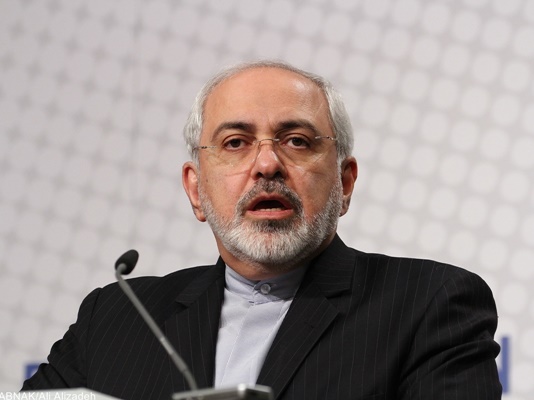In line with the Iranian Foreign Ministry’s international negotiations on the US administration’s illegal and unilateral moves including its withdrawal from the Iran nuclear deal, FM Zarif recently sent a letter to his foreign counterparts, elaborating on the dangerous repercussions of the US withdrawal from the deal.
He urged his counterparts to condemn Washington’s excessive demands and illegal measures and to remain committed to their pledges under the nuclear deal as well as the United Nations Security Council Resolution 2231.
In the letter, the Iranian foreign minister described the US pullout of the JCPOA as the climax of the country’s earlier attempts to violate and undermine the Iran nuclear deal and the UNSC resolution.
Zarif said as in any other international treaty, all parties to the JCPOA must live up to their promises and mutual duties.
The scope, regulations and timeframe of the deal have been set after precise, sensitive and balanced multilateral negotiations, he said.
Therefore, Zarif added, making changes to the deal or renegotiating it is impossible.
He noted that the Iranian nation’s enjoyment of the benefits of this deal shouldn’t be subject to any condition other than voluntary measures linked to the nuclear issue – which have been specifically and exclusively mentioned in the JCPOA and its appendixes.
He pointed out that the US’ illegitimate withdrawal from the Iran nuclear deal and particularly its bullying behaviours to make other states side with it stand in stark violation of the principle of keeping promises and the rule of law.
Zarif said such behaviours also discredit international law at the global level and challenges the goals and principles of the UN charter as well as the efficiency of the international bodies.
The JCPOA put an end to an unnecessary crisis which lasted for over a decade, Zarif said, stressing that the nuclear deal was attached to and endorsed by the UNSC Resolution 2231.
“This means that the JCPOA does not belong only to its signatories, and thus the administration of one side cannot violate it irresponsibly and arbitrarily based on its domestic policies or political divisions with its predecessors,” he noted.
Zarif then stressed that despite Washington’s repeated violations and incomplete implementation of the nuclear deal since its early days, the Islamic Republic of Iran has remained completely committed to its pledges under the JCPOA.
“If the Iran nuclear deal is to be preserved, the remaining sides as well as other business partners should assure us that all damages inflicted on Iran because of the US pullout will be compensated unconditionally through national, regional and global measures,” he added.
Zarif also emphasised in this letter that the Islamic Republic has decided, with goodwill, to take steps to find the appropriate solution within the framework of the JCPOA, and discuss the possibility and the ways in which the parties to this agreement and other business partners can guarantee the Iranian nation’s full enjoyment of the nuclear deal’s benefits.
But if, after applying the existing solutions, the rights and benefits of the Iranian people are not protected, Iran, as mentioned in the JCPOA and the UNSC Resolution 2231, has the right to take appropriate measures in response to repeated and unlawful acts of the United States, in particular its withdrawal from the nuclear deal and its re-imposition of all unilateral sanctions against Iran, he added.
Referring to US Secretary of State Mike Pompeo’s recent remarks that, if Iran does not surrender to the United States’ illegal demands, Washington will target Tehran with the most severe sanctions in history, FM Zarif noted that such statements not only are in violation of the JCPOA, the UN Security Council Resolution 2231 and the rules of international law, but also are in direct contradiction to the US commitments under the 1981 Algeria Declaration.
“In this Declaration, the United States has pledged to refrain from intervening in Iran’s internal affairs,” he added.
Finally, the Iranian foreign minister remarked that each member of the international community is required to stand up to the United States’ violation of law, bullying and disregard for the rule of law.
The United States should not be allowed to threaten other countries or go against the contents of the Security Council resolution, Zarif said.
“The US cannot force other countries to violate a resolution issued under the Article 25 of the United Nations Charter.”
This article requires all states to “take appropriate measures to support the implementation of the JCPOA, including taking action in line with the implementation of the JCPOA and this resolution, as well as avoiding actions that undermine the fulfilment of the JCPOA-bound obligations,” Zarif added.
